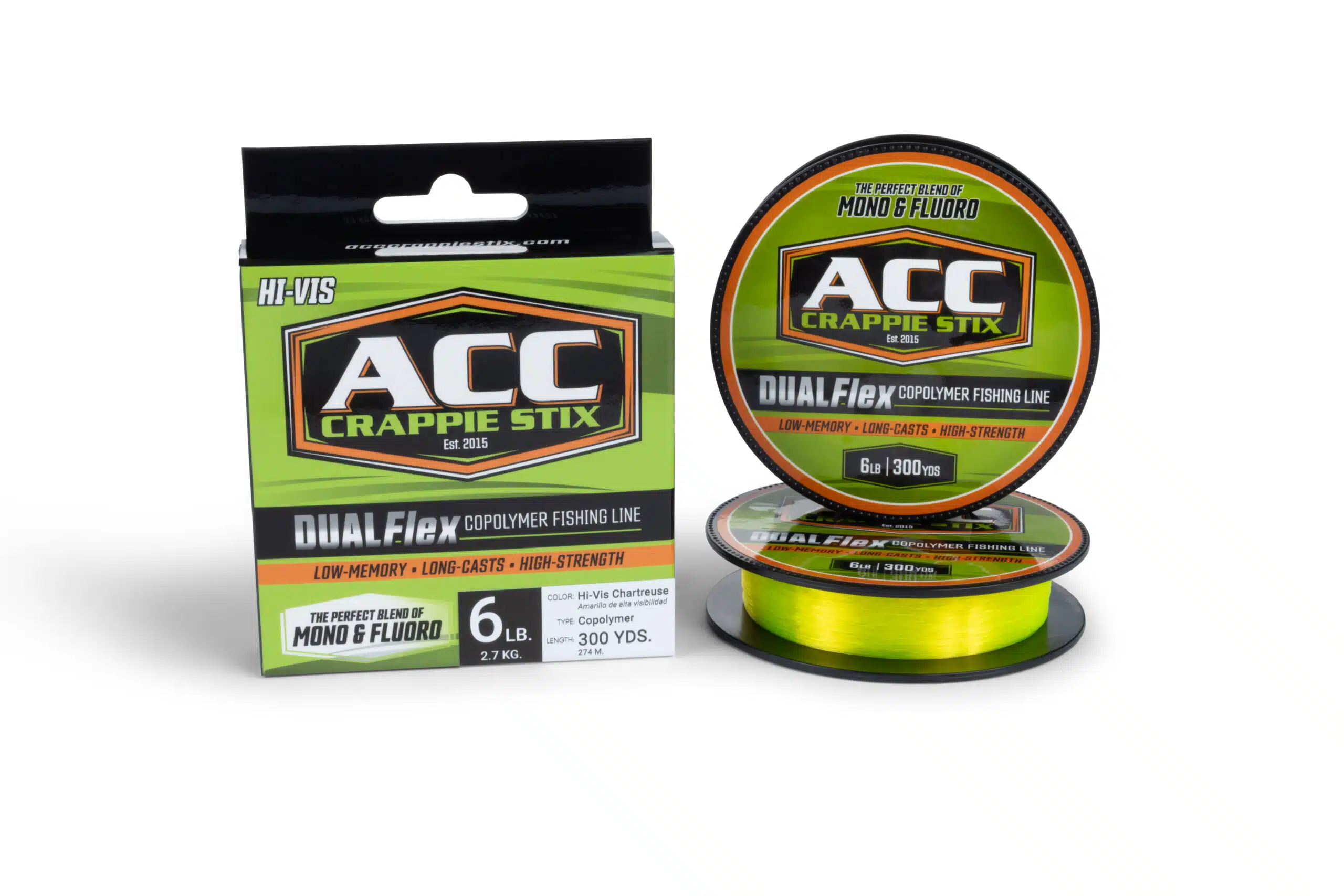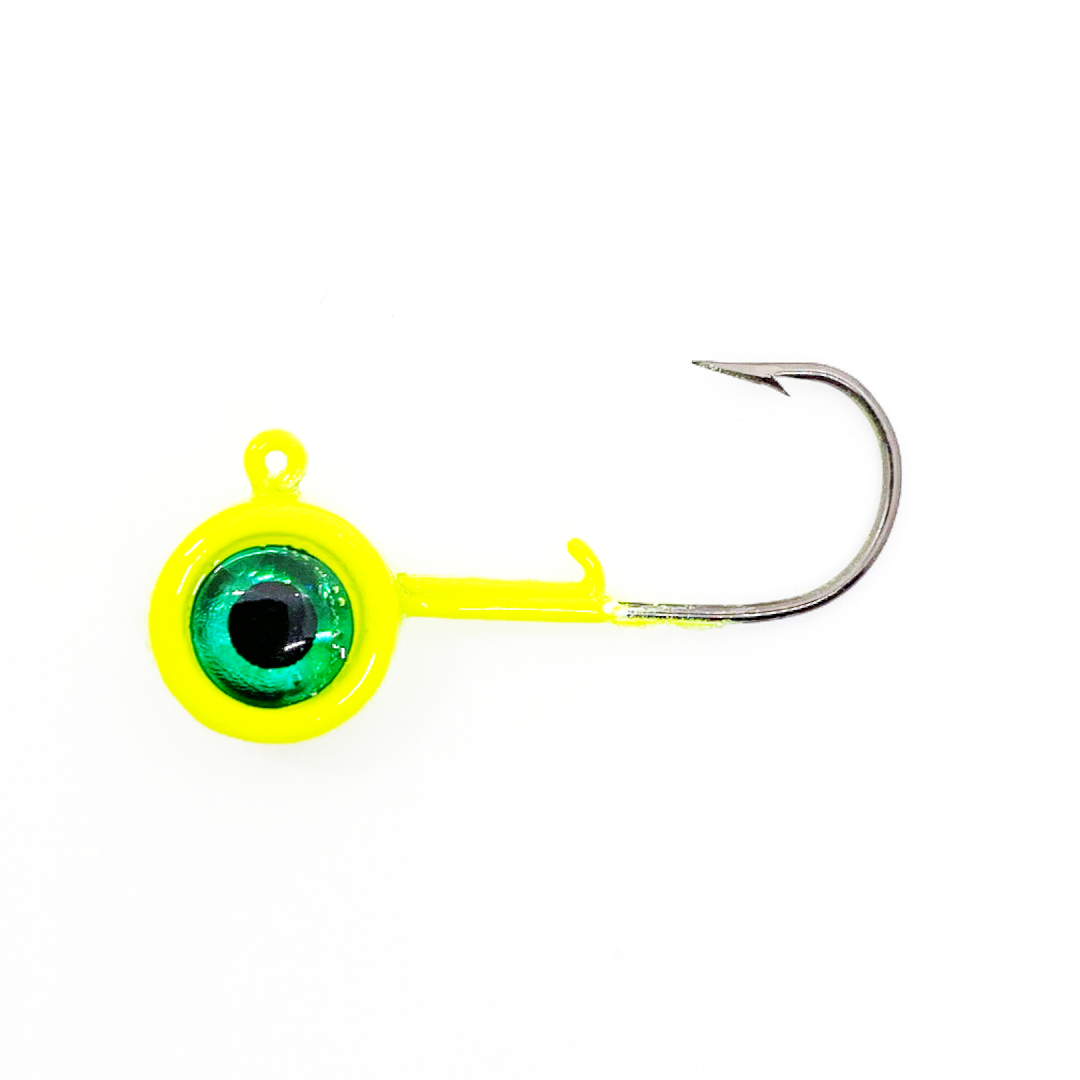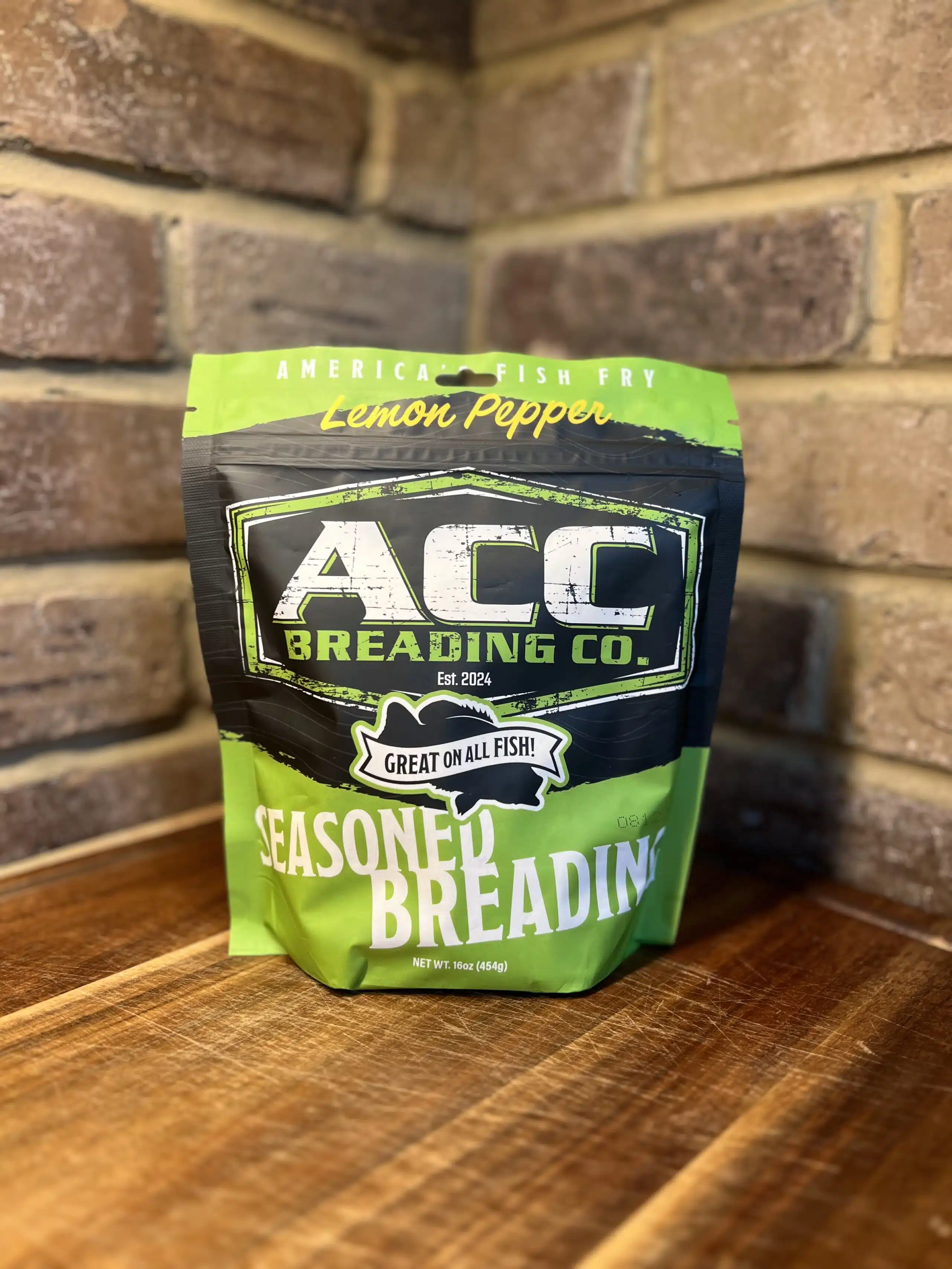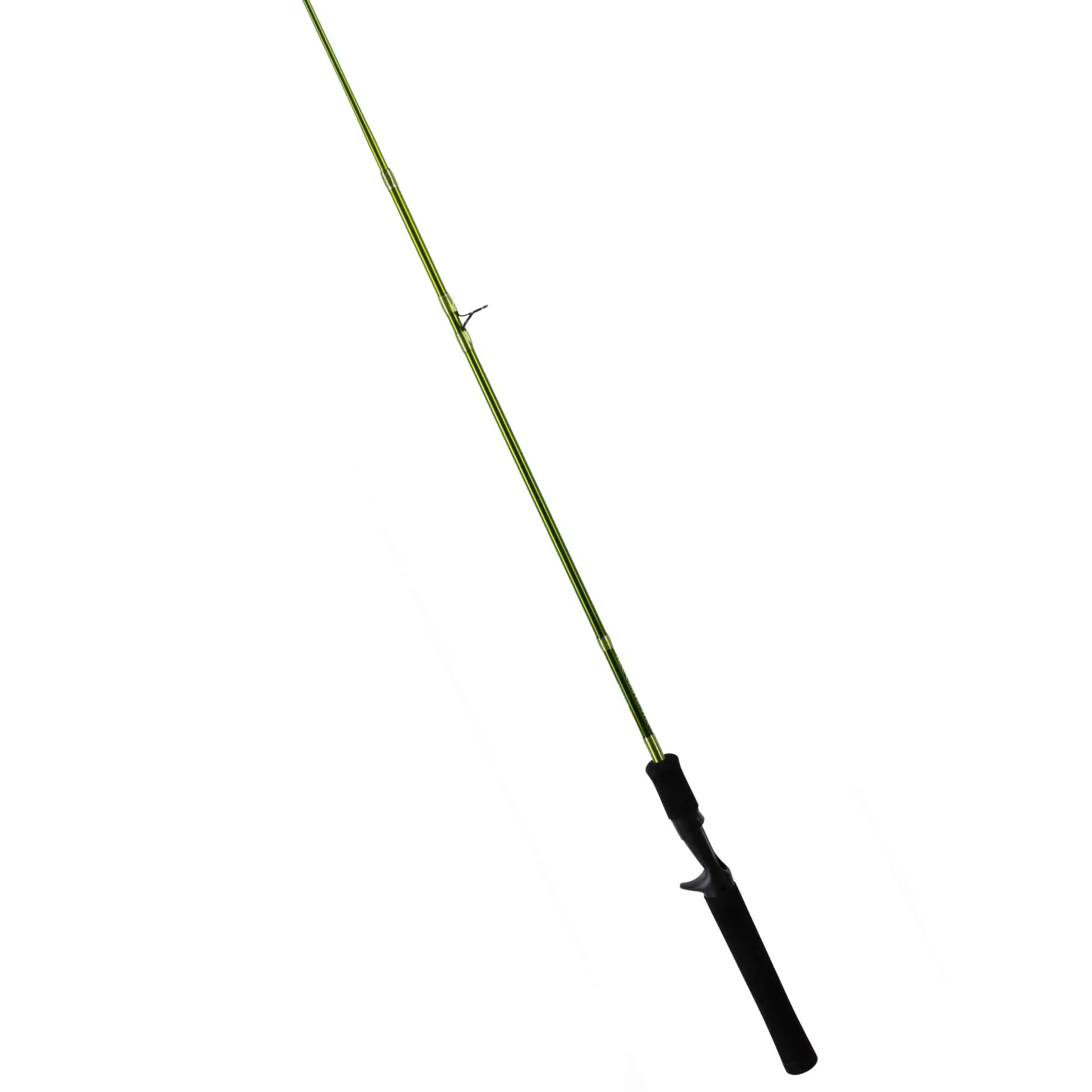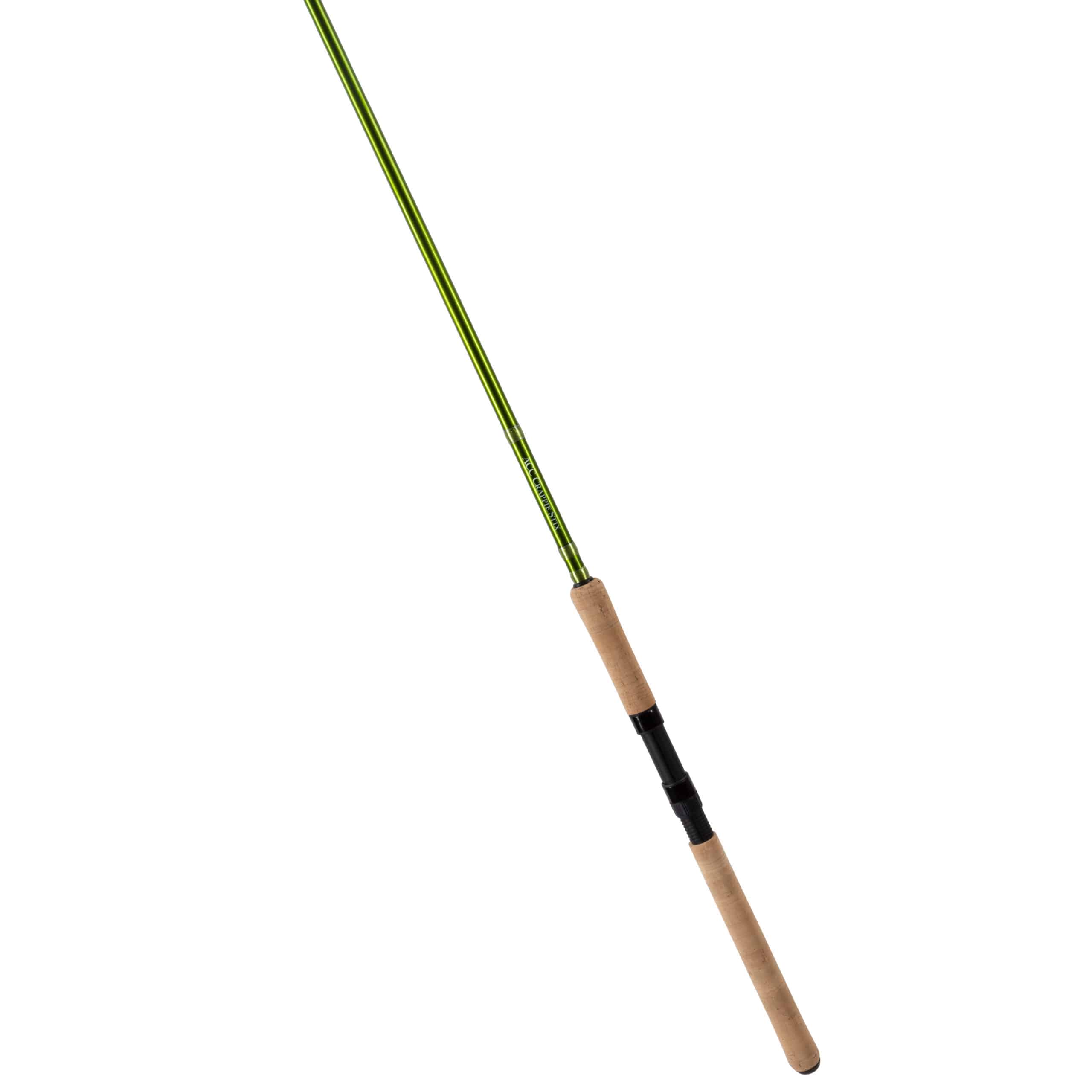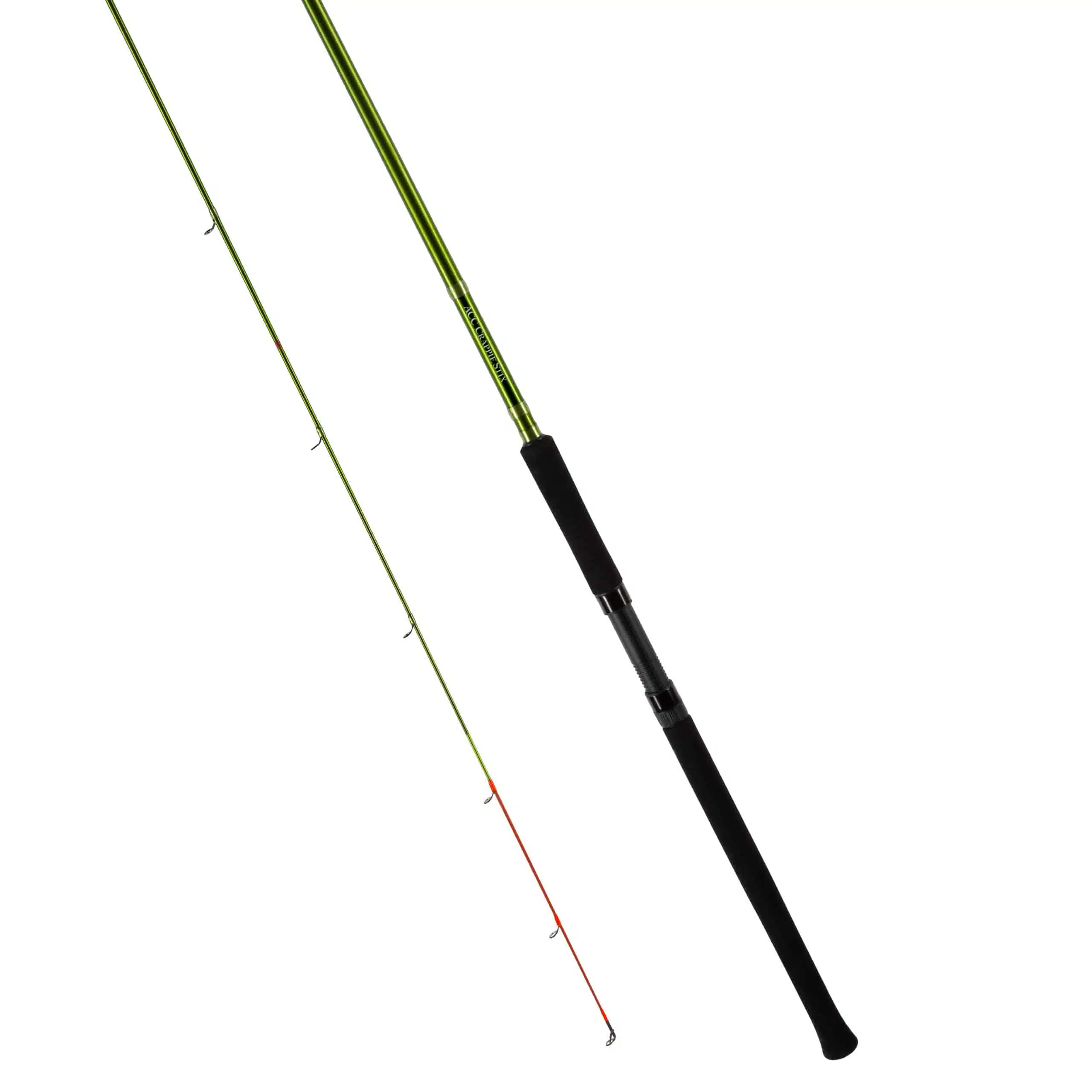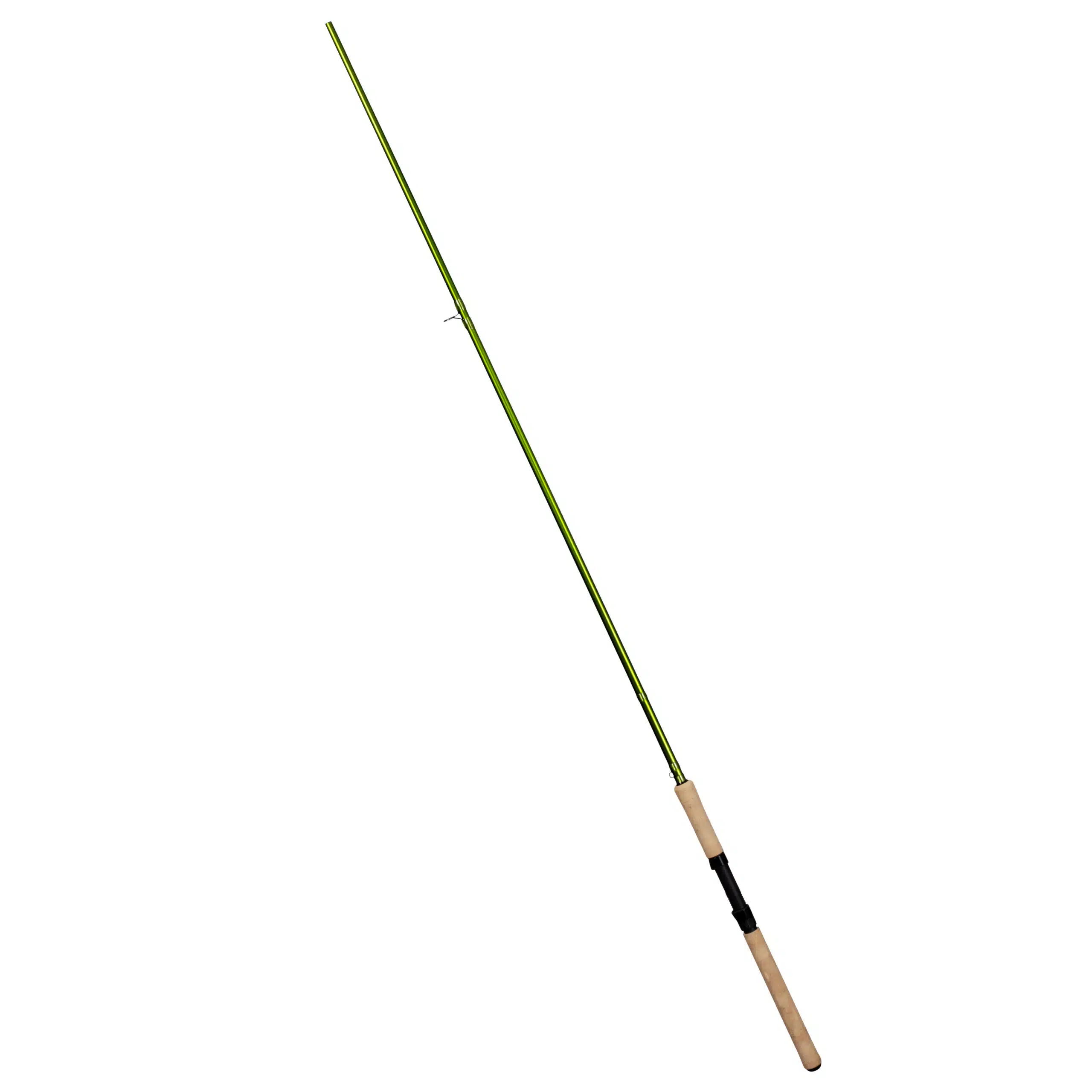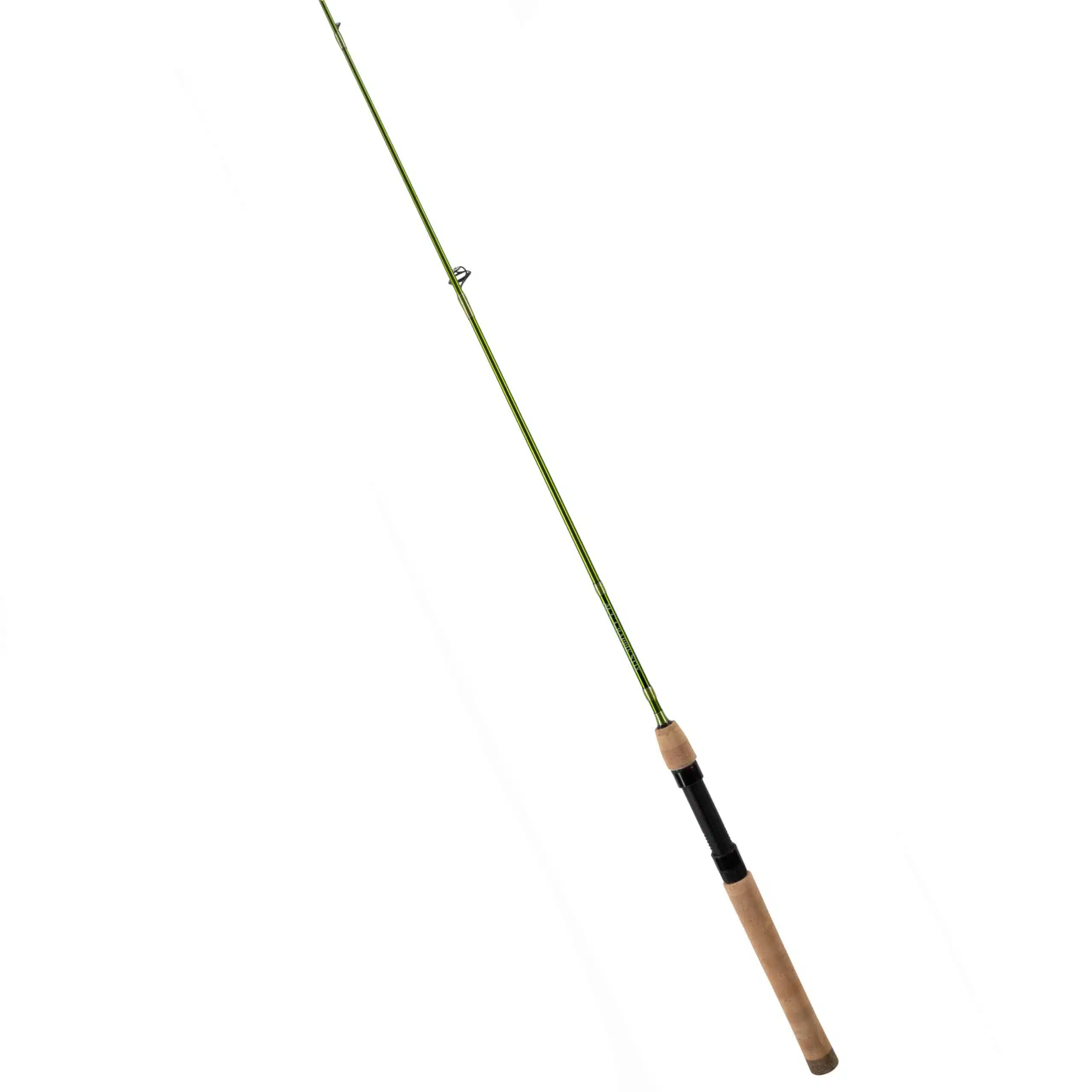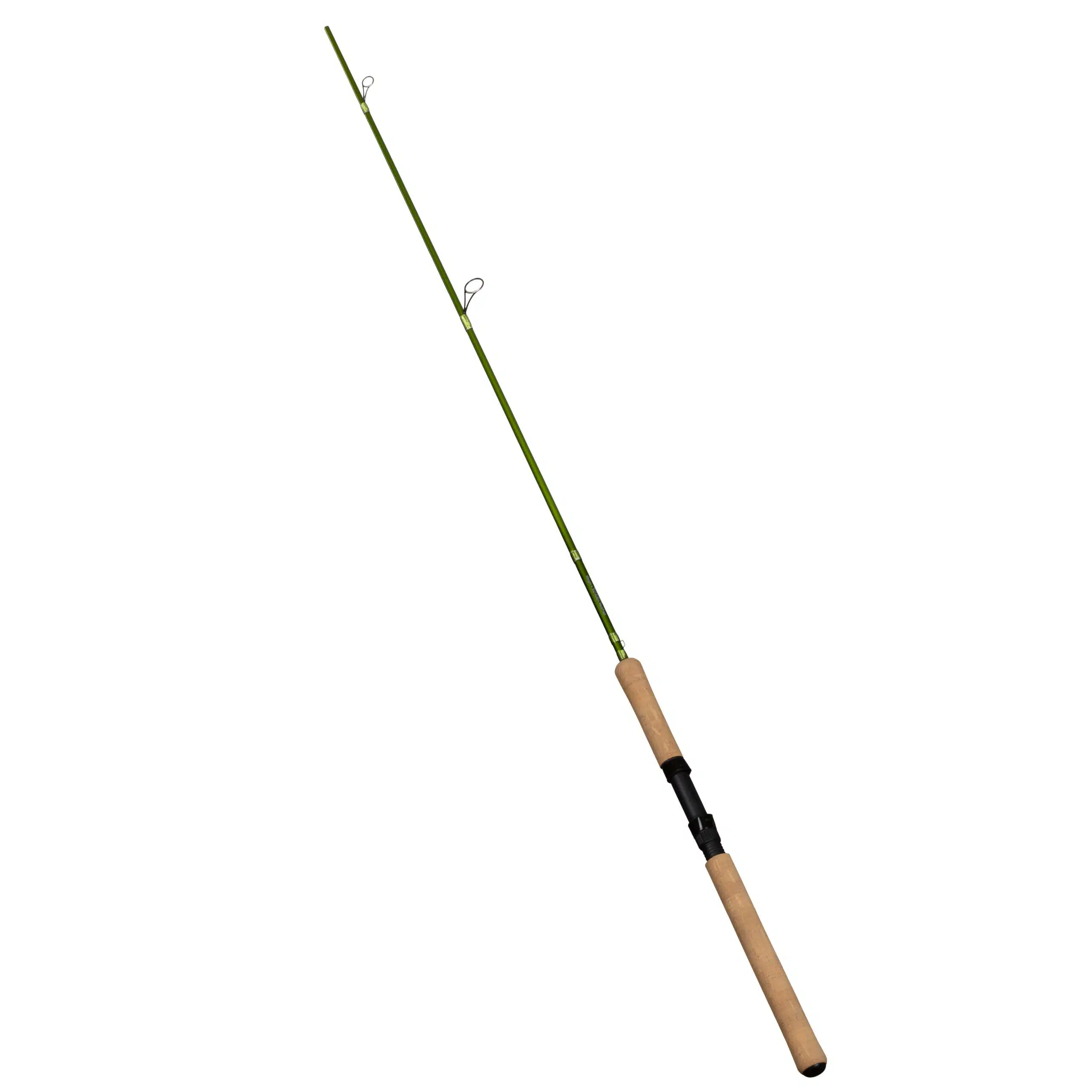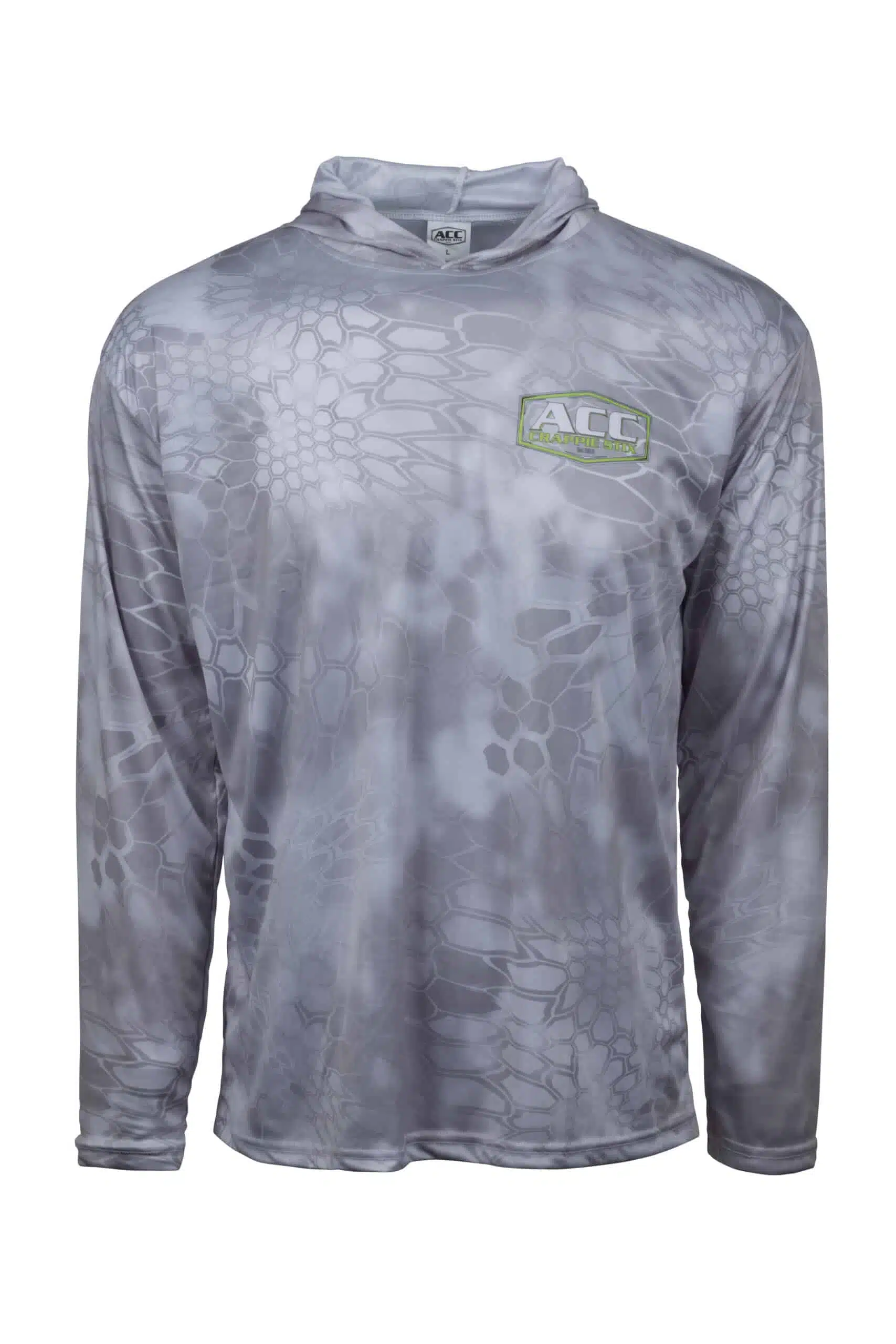Mississippi misadventures: Finding good in a difficult trip
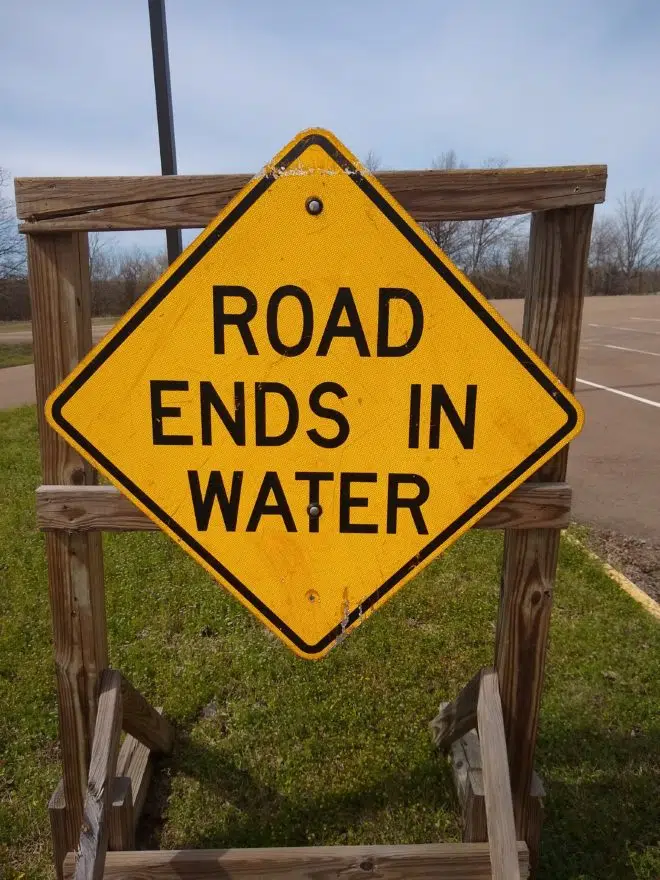
By Greg McCain
The Scottish poet Robert Burns wrote a poem over 200 years ago that included the line (and I’m paraphrasing somewhat) “the best laid plans of mice and men often go wrong.”
Surely Burns didn’t know much about crappie fishing, but he must have been foreshadowing a Mississippi trip recently completed by ACC Crappie Stix owner Andy Lehman and several others, including myself. We had been tantalized by the record stringers brought to the scales in tournament competition, by social media posts that suggested three-pound crappie were jumping in the boat, and by the general assumption that March is always the best time to catch big fish on the Mississippi lakes. The anticipation was so great that we could just feel ourselves hefting those three-pounders.
Even if we could check off just a couple of those boxes, the trip would be a resounding success.
Andy and company arrived in central Mississippi a couple days before I arrived. The misadventures started in advance of my arrival, summed up by the words of local guide and ACC Crappie Stix pro staffer Tim Howell, our host for the trip, “I don’t care what they say; spring fishing sucks.”
Thus, it was for Andy, his Illinois friend Pat Nowland, and Kyle Lasater, a videographer from north Arkansas who produces digital content for ACC. Fishing in the gales that beset the central Mississippi lakes left lots to be desired.
“Trying to catch fish in this type of wind makes these tournament catches all the more incredible,” Andy said.
Aside from the poor fishing, the first misadventure occurred relatively early on the day that I appeared on the scene. I had met Andy and the others at daylight at a remote ramp on the upper end of Grenada Lake, most often considered the best crappie fishery not only in Mississippi but also in the country. We launched and embarked on an arduous trip to open water, winding a serpentine path along a shallow channel, which was clearly outlined on Andy’s electronic map and marked occasionally by poles.
We spent a forgettable morning fishing. The poor fishing was only the start of the day’s misfortunes but not totally unexpected based on the previous days’ experiences. Despite the fact that four crappie of four pounds or more had been caught in a recent tournament and the winners weighed in a two-day record total over 44 pounds (14 fish), we found the crappie scattered and beyond spooky. In fact, in the initial stages of our trip, every single roaming fish that appeared on the screen fled once a bait hit the water. There was no ignoring the bait. They simply disappeared.
The poor fishing was an omen of things to come, only we didn’t really recognize it at the time. Early in the afternoon, Andy received a call from Tim, who said to “get off the water. Everybody’s getting stuck coming in.”
We knew the water was shallow when we started. What we didn’t realize in the five or six hours that we watched fish disappear from the LiveScope screen was that water was being pulled from the lake, making somewhat difficult navigation to and from the ramp even sketchier. Compounding the problem, the gusty wind from the northwest appeared to be “pushing” the water out to the main lake, resulting in something of a tidal effect..
The 2.5-foot channel that greeted us in the morning was now running 1.8-1.9 feet with an occasional 1.5 reading on the electronics.
Andy managed the first part of the circuitous route in his big Ranger without incident. About halfway in, however, he pointed toward the ramp, “That’s Tim. He’s stuck.”
Tim indeed was grounded in the mud, the boat appearing to be doing pirouettes on the soft bottom. Tim was forced to hop into the chilly water – temps ranged from about 53 to about 58 on the trip – and push his boat free of the mud.
As this scene was unfolding 50 yards ahead of us, Andy and I felt the unmistakable feeling of running aground. This occasion was also accompanied by the bump, grind and sudden halt of our boat coming to rest on a stump.
We performed the requisite routine of getting the boat unstuck, using the gas motor in an attempt to move forward or backward, deploying the trolling motor to move to the side, rocking the boat to try to dislodge it. Nothing worked.
About that time, one of the many angels that crossed our paths over the next 24 hours emerged, heroes who probably didn’t realize they were heroes. This particular angelic version had several ACC Crappie Stix secured in rod holders in his Ranger aluminum, so we knew he was one of the good guys.
Despite the fact that our Ranger was secured by suction cups to the bottom of the lake, the other Ranger managed to pull us free after Andy tossed the guy a rope. The freedom proved short-lived, however, as a sudden wind gust – a steady 15 turned to 30 mph in a moment – pushed both boats out of the channel and back onto the mud flat.
Andy didn’t hesitate this time. He jumped overboard and pushed his boat free. We tossed the rope back to the other Ranger, pulled him loose, and both boats finally traversed the remaining three hundred yards to the ramp. (Once we reached the safety of the ramp, we glanced back and saw at least a half dozen other boats stuck on the mud flat although all eventually reached the ramp.)
After all boats were safely trailered, we managed to laugh off the incident, dismissing it as just one of those things people encounter fishing. We congratulated Blake Hauk, owner of Crappie Cove in Maryville, TN, who had caught a 3.10 crappie while fishing with Tim. While the challenge of getting back to the ramp was quickly forgotten, little did we realize that the mud-flat grounding was only the first and ultimately a minor obstacle in our pursuit of Mississippi slabs.
Prior to the trip, Andy had connected with a fisherman from near Oxford, MS, who specialized in wade fishing for crappie. Wading is a time-honored spring tradition in the region, and Andy wanted to try it. Tentatively he had set up a wading trip the following day, but with plenty of daylight left, Andy wondered aloud, “I bet we could get some wading in this afternoon.”
If any of us had known what would unfold over the next several hours, we would have probably quickly shut down such notions. That didn’t happen, and four of us – Andy, Pat, Kyle, and I – hopped in Andy’s truck and set out to meet the wading specialist.
“Where are we headed?” I asked Andy, thinking possibly back to Grenada or to Enid Lake, which is basically within sight of Tim’s house just off I-55 near Oakland, MS. Tim’s place was our headquarters for the trip.
“The GPS says somewhere north of Oxford, ETA about an hour,” Andy said without missing a beat. “We’re going to Sardis.” The Big 4 lakes of Mississippi along the I-55 corridor are, from north to south, Grenada, Enid, Sardis, and Arkabutla.
Kyle, Pat, and I exchanged skeptical looks. From Grenada, “somewhere north of Oxford” is basically halfway back to my home in northwest Alabama. Despite the length of the drive, we were all in for the wading.
By text, Andy had received some basic instructions about where to go, including some mentions of going through a campground, crossing some water, and locating a big rockpile. We found the campground – a Corp of Engineers facility called Hurricane Landing – and eased through it toward the lake, still drained to winter levels. We saw acre after acre filled with stump fields and stake beds, crappie heaven. If we had just paid attention to the sign that read “Road Ends in Water,” we might have still called off the trip. All of us missed it, however.
We drove until we came to what will eventually be the bottom of Sardis once it is filled to summer pool. We crossed a trickle of water – no big deal, we thought at the time — and quickly came to a second water crossing, this one slightly deeper but crossed easily enough in Andy’s four-wheel drive Ford F-150.
Then we drove through a bigger stretch of the dry lake bed, looking to our left and spotting the big rockpile. Beside it were perhaps 25 vehicles, including some with boat trailers attached. Because the boat ramp next to the campground was high and dry, boaters were taking the same route we followed and launching at our ultimate destination. Before we got there, we encountered the real water, a 200-yard stretch significantly deeper than any we had crossed so far.
The water appeared to be so deep, in fact, that Andy sat still for a good five minutes surveying the scene. Cane poles embedded in the lake bottom marked the stretch. Even though we could see that at least two dozen vehicles had already crossed the water, the unknown created a wall that almost caused Andy to turn around.
Somewhere during that five-minute period, Kyle mused about the possibility of getting stranded in such a place. His prophetic words were interrupted by a battered Ford Ranger – vintage late 1980s – which passed us at a good clip, plunged into the water, and quickly joined the other vehicles on the island.
“If he can do it, so can we,” Andy said.
Indeed, Andy’s Ford had no difficulties crossing the expanse of water, and we soon parked beside the other vehicles.
The wade fishing, much like the morning trip, proved difficult in a variety of ways. The water was still chilly by mid-March Mississippi standards, and the wind created a chop worthy of a slightly bumpy day in the Gulf of Mexico. Two-plus hours of fishing resulted in one small crappie.
“You’re just a little bit early,” Scottie, the wading specialist, understated.
The wading trip ended about 30 minutes before sundown. Most of the vehicles had already departed the island by the time Andy came trudging back to the truck. After removing his waders, Andy hopped in and turned the key, a process that resulted in nothing but a faint clicking sound under the hood.
Andy said “oh, my” or some such colorful expression. He tried again and got the same result.
“It’s done this before,” Andy said. “It will start eventually.”
By this time, just about all the vehicles were gone with the exception of a couple, one trailering a boat and the other an older SUV that had been parked the entire time right next to where the rockpile met the water.
The two fishermen got their boat on the trailer and told us they had a jump box if we needed it. By this point, we were ready to try anything although the battery did not appear to be the problem. Later the two men, who knew far more about engines than any of our party, tried a little of everything, jumper cables, pulling the fuses from the panel under the hood, calling friends who knew even more about Ford trucks than they did. Nothing worked.
The consensus was that water had gotten into the fuse panel, the spot from which the clicking was emanating, and was preventing the engine from starting.
Finally, one of the men got a call that his wife was taking their child to the emergency room. He had to leave. Andy thanked him for the help, and we were left with only the older SUV by the rockpile. Actually, by this point, Scottie had joined us in his Toyota truck. (He had previously parked closer to the campground and only crossed the long stretch of water to help out.)
What to do? Leave the truck stranded in place overnight? Call a wrecker and beg them to cross the water to reach us? Finally, Andy called Tim – who was celebrating his birthday with his wife, by the way – and he agreed to rescue us.
“Just keep in mind, I’m an hour away, so it will take me a while to get there,” Tim told Andy over the phone. “And you’re going to owe me big.”
Andy and Scottie soon departed to guide Tim through the water route. By this point well after sundown, the sinister dark invaded the little island, only the type of dark that comes in a truly isolated location. In the truck, Kyle, Pat, and I avoided the ever-present wind, voicing our concerns about being in such a spot after hours.
The older SUV, innocent enough before sundown, took on an ominous look. Figures, some looking to be surviving remnants of the Manson family, soon emerged dancing around the vehicle, lights from their flashlights and phones created a strobe effect in the pitch dark.
Eventually, I couldn’t stand the confines of the truck. Once outside, I sheepishly realized that the Manson relatives were actually pre-teen children just playing around the vehicle, their parents fishing from the bank just out of our sight-lines from the truck.
Tim finally arrived, negotiating the long stretch of water easily in his big diesel. The plan was to hook a rope to Andy’s truck and pull it to the relative safety of the campground, probably close to a mile away, including the three stretches of water.
I’ll be honest. I didn’t think Tim’s truck or anything short of a big wrecker would do the job, but my thoughts were misguided. Soon Andy’s truck occupied one of the camping spots at Hurricane Landing.
The next morning, Andy and I left for the campground in my vehicle, taking with us one of the staples of a mechanic’s tool arsenal, a heat gun. The first step in getting the truck started was to dry out the fuse panel. After reaching the campground, Andy did just that for about an hour. We pulled each fuse and relay, ran the heat gun over the empty spots repeatedly, and then hopefully returned them to the correct position. Again, nothing worked.
Andy finally got a wrecker service to respond on a weekend morning, but it was 45 minutes away. In the meantime, Scottie solicited the help of a friend, who worked for a local Ford dealer.
The campground was relatively empty although we did become friends with a group of women walking their dogs. We were there so long that they made three different circuits with the dogs, one of which was so old that it occupied a place of honor in a wagon.
I had noticed a white van isolated in a spot in one corner of the small campground. Again, the previous night’s events had put my mind in a bad spot. I thought to myself, “That looks like a child predator’s vehicle.”
Later, the van materialized from out of nowhere and stopped within feet of us. Out hopped a grizzled looking man with a smile on his face and a surprisingly nimble step. We talked for a moment as I kept one suspicious eye on the van.
“What seems to be wrong?” the man said after a few moments of chit-chat.
Andy told him about the fuse panel issues, and the man responded, “I think I know what’s wrong.”
Instead of looking under the hood, the man asked if it was okay to get in the cab of the truck, where he proceeded to remove another fuse panel and to jiggle a few wires. He told Andy to try the ignition one more time, and the truck miraculously cranked without hesitation.
Andy hugged the man, hi-fives were exchanged, and the “Hallelujah Chorus” echoed in the background. Of course, the wrecker and the guy from the local Ford dealer arrived about the same time, making Andy’s wallet several hundred dollars lighter.
“I’m not cutting it off until I get to Illinois,” Andy said.
The trip to Mississippi won’t be the last for Andy. Putting a positive spin on the experience, he had actually offered an inspirational quote on the way to retrieve the truck earlier that morning.
“You have to accept that not every trip is roses and rainbows,” he said. “You learn so much on a trip like this and really see the good in people. Just about everybody we encountered did what they could to help us. There were angels in our path. The world can be a dark place, but there are still a lot of good people in it.”
And maybe even a long-forgotten, skeptical Scottish poet would agree with that philosophy in spite of the misadventures in Mississippi.
